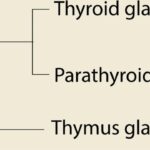How does acid reflux relate with heart palpitations? There is no clear correlation between the two. But a lot of people experience these issues at the same time, which raises this question: Can acid reflux cause heart palpitations? In this article, we will look into the connection between acid reflux and heart palpitation causes and treatments for both.
What is acid reflux?
It is known as gastroesophageal reflux disease (GERD). Acid reflux is the reverse flow of the stomach content to the food pipe or oesophagus. This backflow commonly occurs when the lower oesophagal sphincter (LES), which is responsible for preventing the stomach contents from flowing back upwards, is weak or relaxed.
Consequently, this leads to an uncomfortable burning pain centred at the chest, medically known as heartburn, and other complaints such as the feeling of vomiting, bitter fluids in the mouth, and in some cases even soreness in the chest.
Common causes of acid reflux include:
- Eating large or fatty meals
- Lying down after eating
- Smoking
- Obesity
- Certain medications
Because the symptoms can resemble heart issues, acid reflux sometimes is misinterpreted as a heart condition. Knowing its symptoms whill help you to differentiate between acid reflux and heart-related concerns.
What are heart palpitations?
Heart palpitations are abnormal consciousness of the heartbeat. A person may perceive the heart as beating very fast, having a fluttering sensation, or feeling that it has even stopped for a moment. Albeit these sensations are mostly safe, they can be quite frightening, especially when they happen often.
Heart palpitations can be caused by:
- High stress or anxiety.
- Use of stimulants such as caffeine or nicotine
- Dehydration
- Doing too much during exercise
- Hormonal imbalances
Even though the majority of heart palpitations will be due to non-cardiac causes, some cases may point to a heart problem that must not go undiagnosed. If they are happening frequently or even more seriously—they cause a disturbance in your daily living—then please see a doctor.
Can Acid Reflux Cause Heart Palpitations?
At first glance, it may not be presumed that heartburn and the feeling of one’s heart racing are in any way interconnected. But there is a way in which the brain, through the chest and belly, creates the vagus nerve, which is responsible for both functions. This is a nerve whose function influences the gut, as well as the heart rate.
Whenever there is acid reflux, the oesophagus is stimulated, and this is done by the vagus nerve, which can also lead to the stimulation of the heart, making it race.
In addition to this, some of the symptoms that are associated with acid reflux, such as any discomfort or tightness in the chest area, are very similar to those associated with heart problems, which might cause panic and especially heart palpitations.
Triggers of Heart Palpitations Due to situations like acid reflux.
In other instances, acid reflux can lead to heart palpitations in the following manner:
- Stimulation of the Vagus Nerve: The time when acidic content gets up into the oesophagus, its lining gets irritated, and the vagus nerve is triggered, causing a decrease in heart rate.
- Chest Discomfort Misinterpreted as heart discomfort: It is quite common for individuals suffering from acid reflux to feel a burning sensation within the chest. In most cases, this burning feeling is confused with pain induced by the heart, resulting in its associated symptoms, which are severe anxiety.
- Secondary Inducers: Some strategies, such as eating heavy food, taking alcohol, drinking coffee, and sleeping after a meal, tend to enhance acid reflux and at the same time provoke a state of agitation.
This understanding gives you perspective on the heart; even realizations that sensations are somehow relative to the heart may be caused by acid reflux.
Congestive heart failure and gastroesophageal reflux risk factors
For some people, acid reflux and heart palpitations may coexist because of specific risk factors.
- Diet and Lifestyle Habits: Personal habits such as stress, high caffeine levels, smoking, and alcohol promote both conditions above.
- Excess Weight: Added weight can exert strain on the abdomen, resulting in increased chances of gastroesophageal reflux, some of which may cause a heart rate increase.
- Some Medical Treatments: The use of medicines like non-steroidal anti-inflammatory painkillers, skeletal muscle relaxants, and some inhalers may aggravate acid reflux and also cause heart palpitations.
- Treating and avoiding these risk factors should assist in decreasing the incidence and severity of both GERD and heart palpitations.
When to Consult a Physician
You should be concerned with the amount of time, how often it occurs, or other symptoms if acid reflux and heart palpitations coexist. You should consider getting help if you have:
- Treatment that is frequent or excessive
- Pain in the chest that extends beyond just a few minutes
- Episodes of lightheadedness or loss of consciousness
- Bouts of breathlessness
Although acid reflux and anxiety aren’t major medical problems by themselves, the above symptoms may suggest a problem with a remote cause. A medical professional can evaluate your symptoms and suggest a possible cause.
Diagnosis and Tests for Acid Reflux and Heart Palpitations
To ascertain the underlying cause of your complaints, a physician will likely suggest several diagnostic procedures:
Diagnosing Acid Reflux:
- Endoscopy: This is performed to ascertain whether the patient has any lesions of the oesophagus.
- PH Level Test: A test that checks the acidity levels inside the oesophagus.
Diagnosing Heart Palpitations:
- Electrocardiography: Monitors the heart’s rhythm and rate.
- Holter Monitoring: A portable device worn over a few days to record the patient’s heartbeat.
- Stress Test: Assesses how the heart behaves under control over the limit of physical activities.
These examinations may assist in determining if the focus of your feelings of fluttering in the chest region is related to problems with your heart or with reflux.
Medications for Acid Reflux and Palpitations
The treatment of heart palpitations and acid reflux usually entails the incorporation of drugs together with non-pharmacological methods.
Relief Measures against Acid Reflux:
- Use of drugs: Antacids, H2 blockers, and proton pump inhibitors (PPIs) help in the control of acid secretion and symptoms.
- Lifestyle modification: Minimizing plain meal portions, eschewing certain foods, and standing up meals, especially after the spaz remains, will lower episodes of reflux.
In Case of Palpitations:
- Alleviation of caffeine, tobacco, and alcohol intake as well as stress.
- Calming strategies: Placing into action deep breaths, yoga, or meditation techniques will assist in controlling palpitations resulting from anxiety.
Possibly the most crucial reason for addressing acid reflux is that it may lower the amount of palpitations that occur, especially in regards to the two conditions being correlative.
Read also: Can Allergies Cause Heart Palpitations? Understanding the Connection
How To Manage Both Acid Reflux and Heart Palpitations
Simple, daily practices can effectively help with the issues of acid reflux and heart palpitations.
- Consume more meals that are smaller in size: This will lessen the chances of acid reflux and reduce the pressure on the stomach.
- Do Not Lie Down Immediately After Meals: To allow for digestion, do not lie down within two to three hours after eating.
- Minimize Stimulants: Caffeine, alcohol, and nicotine should be kept to a minimum since they can aggravate acid reflux and palpitations.
- Adopt stress-reducing measures: Stress relief methods such as meditation, yoga, and deep breathing reduce stress and decrease palpitations.
- Eat and Drink Well: Continuously drinking water throughout the day is beneficial for digestion and also helps reduce acid reflux.
Taking these measures into consideration may assist in easing the frequency of acid reflux and heart palpitations.
Frequently Asked Questions
1. Does GERD produce effects on heart function and structural integrity long after it is treated?
Although GERD does not lead to heart-specific diseases, these episodes might result in chest pain over a prolonged period. Nevertheless, a GERD episode causing chest discomfort is not known to damage the heart.
2. How do I determine the cause of my heart palpitations due to either acid reflux or a heart condition?
Palpitations felt mostly after eating or during heartburn may suggest a correlation with gastroesophageal reflux disease. On the other hand, if accompanied by dizziness, fainting, and severe chest pain, bring oneself to the doctor because it can be a heart problem.
3. I get heartburn, but is it appropriate to say I also get heart palpitations simultaneously?
Some people may also experience palpitations while having acid reflux, but this is not the case for everyone. This may be related to the vagus nerve, which controls heart function and cooling.
4. Does this mean that mitigating or lessening acid reflux will in turn remove palpitations?
In some instances, it might. Reduced stimulation of the vagus nerve by controlling acid reflux through changes in diet and lifestyle can help reduce the occurrence of palpitations.
5. Do heart palpitations during acid reflux pose any threat to one’s health?
Generally no. These palpitations during an acid reflux are usually seen as benign. Even so, if this is recurring or persistent, one should seek medical advice.
Conclusion
Acid reflux and heart palpitations may be quite unpleasant and distressing, but these phenomena are often connected through the vagus nerve and are not a problem with the heart.
Most of the time, a decline in acid reflux will result in a drop in the level of palpitation. But if the above symptoms do not improve, seek medical advice for evaluation of any potential heart problems.



